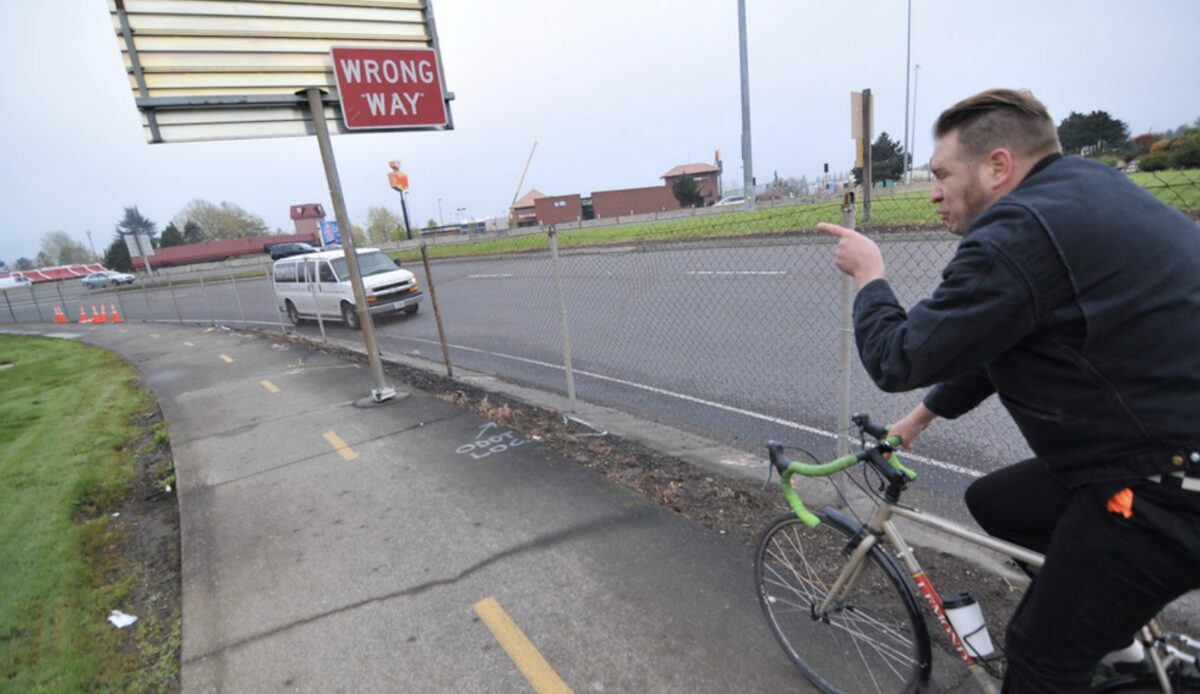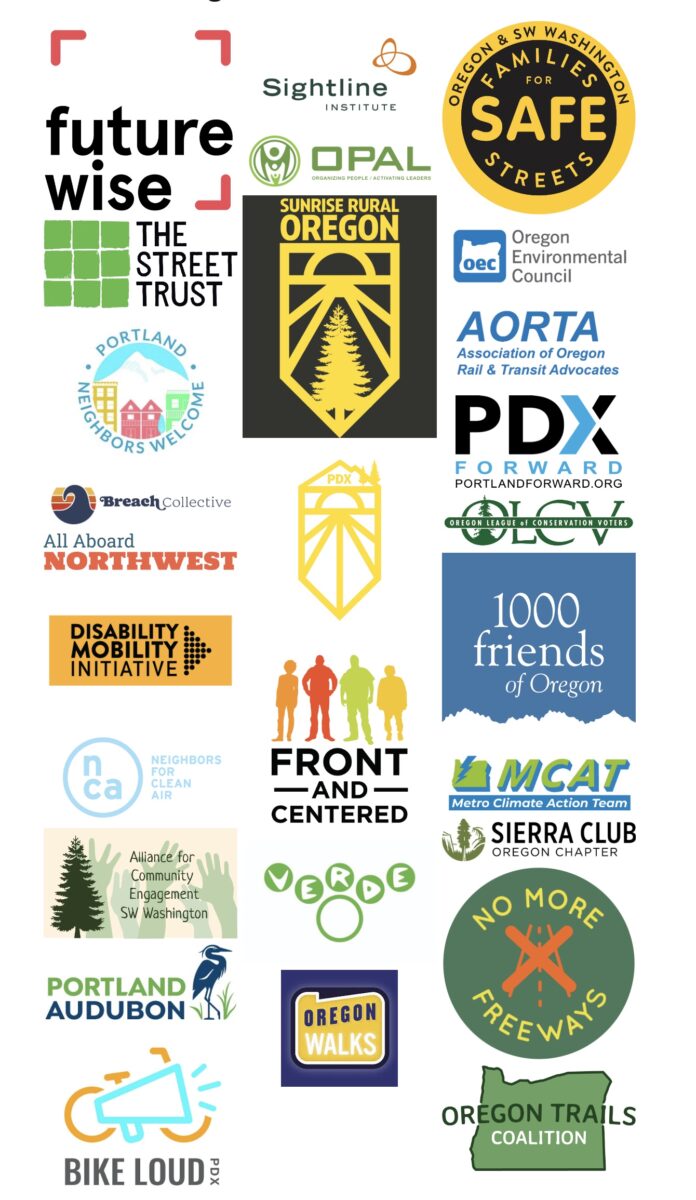This week leaders from Metro and the City of Portland will make a decision on whether or not to support the multi-billion-dollar megaproject that would widen I-5 between Portland and Vancouver and replace the aging Interstate Bridge. They are being asked to endorse the project’s Locally Preferred Alternative (LPA), a major milestone in the federally-required environmental review process.
The LPA is what will move forward into more in-depth analysis. If a particular design isn’t part of the LPA, the project team has every (legal and political) right to say, “Sorry, that wasn’t endorsed as our LPA. We can’t look at that.”
Suffice it to say, this is one of the rare moments when local political bodies can assert influence over this massive project. And while the tea leaves suggest it will get the votes it needs, there’s still a lot to watch as this week’s discussions unfold.
Below is a bit of context of where the project stands, followed by a few thoughts on the two big votes ahead.
Project Status
You’d think that after its spectacular failure a decade ago (when it was known as the Columbia River Crossing project), IBRP staff would have figured out how to clear the many hurdles required to reach the finish line. But it hasn’t played out that way.
Just last month, Willamette Week reported on a “significant complication” of the proposed design being too low for the U.S. Coast Guard to support. Like they always do, IBRP project staff said it’s much ado about nothing and they’re working with USGC to find a solution they can support.
But contention about the height of the bridge (too low and ships can’t pass through, too high and transit and other users can’t get over) is just one of the many little fires the IBRP team is trying to put out.
The project is being criticized for being too small and too big, and there are still many unanswered questions around how it will be funded and other key details.
The headline from the LPA is that the project is recommending the “one auxiliary lane” option; but a noted critic of the project, urban economist and No More Freeways co-founder Joe Cortright, says that could be a wolf in sheep’s clothing.
The Just Crossing Alliance, a coalition group that includes The Street Trust, Bike Loud PDX, Sightline Institute, Sierra Club, 1000 Friends of Oregon and many others (at right), thinks it is, “irresponsible to move forward with this single alternative.” They want Metro and Portland City Council to delay a vote on the LPA and require the Oregon and Washington departments of transportation to include another design alternative (like a lift bridge or tunnel) to be studied further.
On the other end of the advocacy spectrum, the IBRP is hearing that their LPA isn’t big enough. At a meeting of the City of Portland Freight Advisory Committee last week, several members made it clear the design should have more lanes.
After seeing a presentation by an IBRP staff person, Columbia Corridor Association Executive Director Corky Collier said, “In the CRC process, the data was quite clear that three auxiliary lanes worked best for traffic flow, but two auxiliary lanes was a close second place. And one auxiliary lane was a distant third place.” Oregon Trucking Association President Jana Jarvis also sounded skeptical of the LPA being only one auxiliary lane. “One of the things that stuck out in my mind when I looked at the numbers [of one auxiliary lane] was northbound traffic during certain periods of congestion only improved by two minutes,” she said, while asking for more analysis of two lanes.
At that same meeting, IBRP Deputy Program Manager John Willis cautioned members about equating auxiliary lanes with increased capacity. “I’m probably going to get in trouble for saying this,” Willis said. “But I think when we start describing the aux lanes from a capacity point of view we miss the real reason for putting those in… it’s safety, it’s operations, and yes, they do improve flow for the three general purpose lanes.”
“So Corky, you and I have to learn to refer to it as ‘flow’ and not ‘capacity’,” Jarvis replied, “We got it, John, we will change our terminology.”
There will be a lot of careful words chosen on Wednesday and Thursday when Portland City Council and Metro convene.
Portland City Council (Wednesday)
After her predecessor demonstrated historic opposition to the project and gave local activists a glimmer of hope, Portland Bureau of Transportation Commissioner Jo Ann Hardesty just wants to get something built.
Hardesty supports the LPA and will frame it as a win for herself and activists because of how it could have been much wider. Without objections from Hardesty, no other council member will dare stick their necks out to stop this project’s inertia.
I can imagine Commissioner Mingus Mapps asking questions about climate impacts and funding, but IBRP staff will be prepared to return serve and will very likely win the point.
Metro Council (Thursday)
Metro is the vote many activists will watch closely.
You might recall back in January when they adopted a long list of detailed conditions for their support of the LPA. Councilors wanted project staff to study different design options that would be less expensive and dramatically increase transit ridership. They wanted an “investment grade” financial analysis, more details on climate impacts, and so on.
The project team has not met those conditions. Instead they are saying, essentially, “We hear you. You’ll have to trust us.”
And there have been serious concerns leveled by Metro councilors in the recent past that they’ll have to rectify with themselves — and with voters — if they endorse the current LPA. Over the past few months, the tone has become a bit more agreeable, but that was before a clear line in the sand needed to be drawn.
Stay tuned for more coverage. Follow our live thread on Twitter starting with the Portland council meeting Wednesday at 9:45 am.




